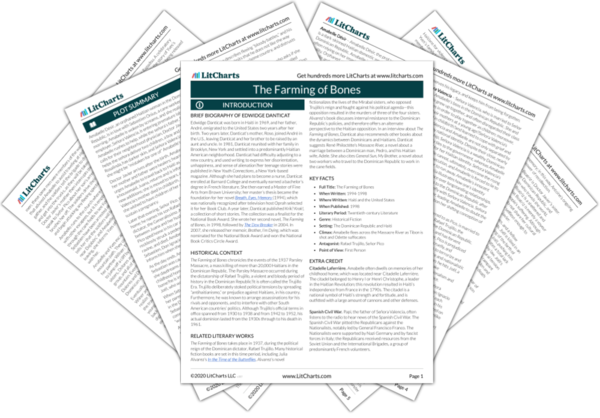Don Ignacio’s fixation with the Spanish war is a sign that he is very invested in his cultural identity, though it is a different identity than that of Señor Pico. Moreover, the scene is further dominated by a large portrait of the Generalissimo. This portrait is a symbol of how important Dominican patriotism and heritage is to the family. Don Ignacio ignores the portrait to listen to the radio, however, demonstrating that he is stuck between Spanish and Dominican culture. Don Ignacio’s position between the radio and the portrait illustrates how cultural boundaries can exist not only between countries, but also within a single household.
